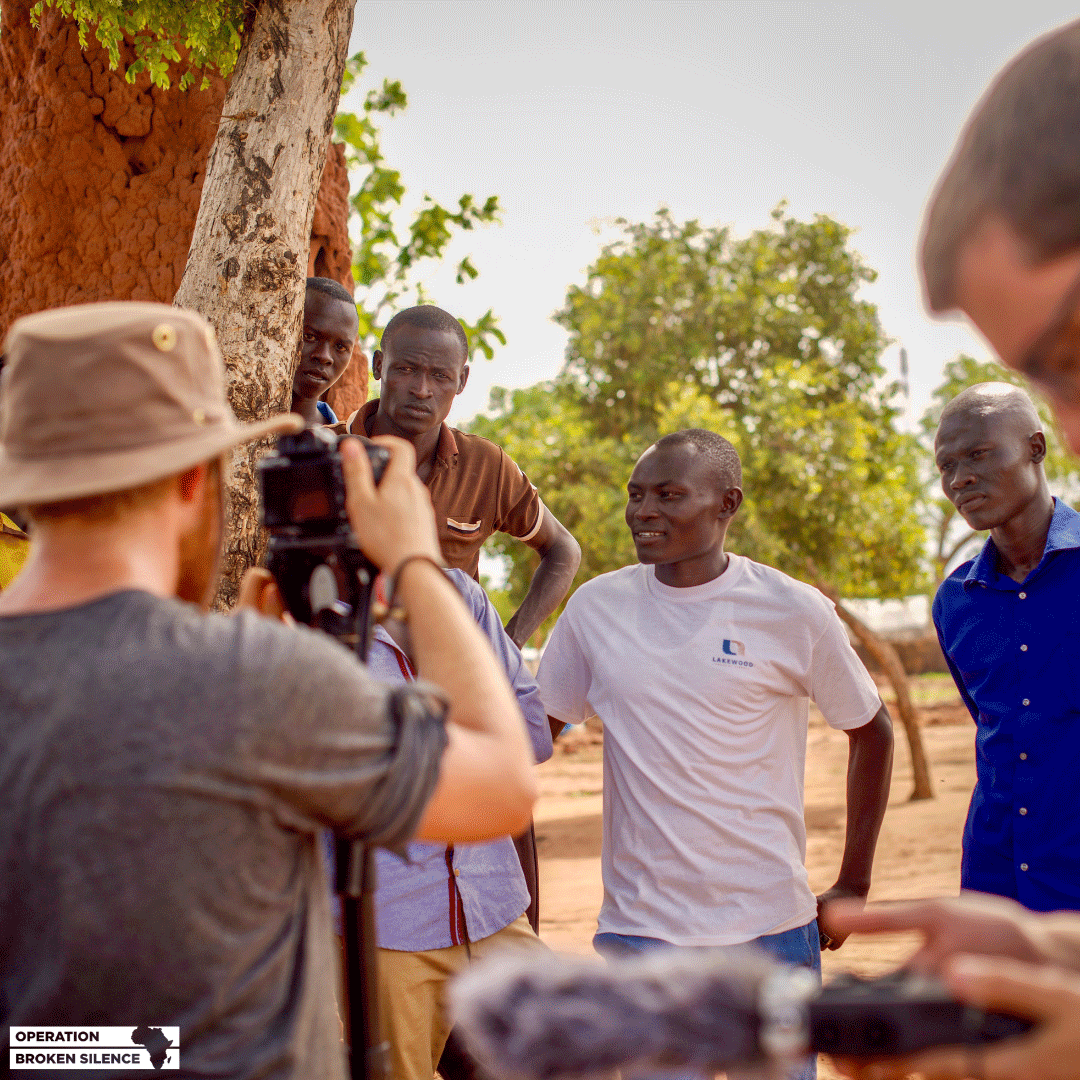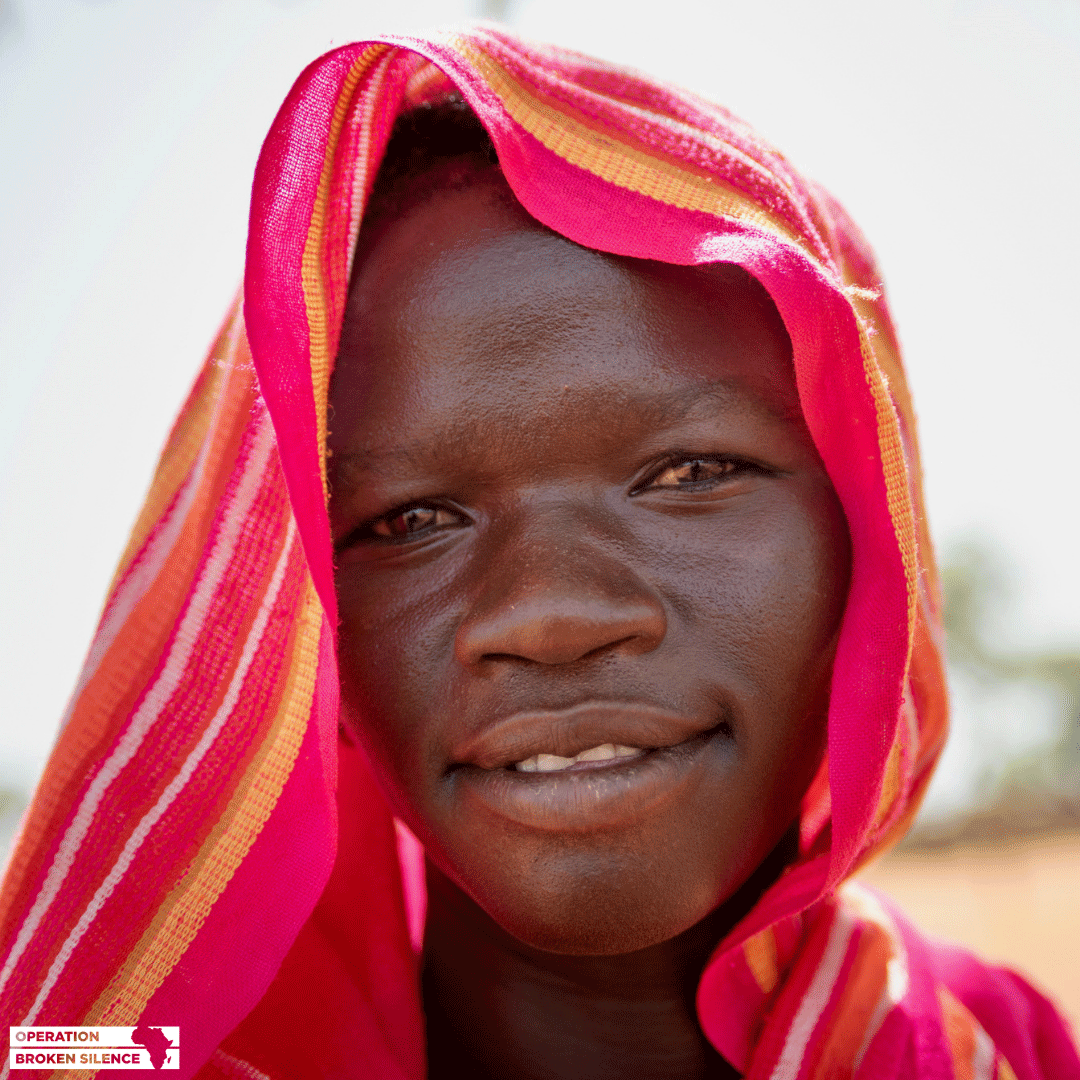How I Resist Psychic Numbing
By Mark C. Hackett
Mark is the Executive Director of Operation Broken Silence, a nonprofit organization that is building a global movement to empower the Sudanese people through innovative programs. Learn more at obsilence.org.
In June 2012, I found myself standing on a rocky hillside in the Nuba Mountains of Sudan. It was a hot day underneath the unforgiving sun, so hot that most people were under the shade of nearby trees. Even this was barely a respite: the slight breeze was a burst of warm air in your face, like a hair-dryer being turned on and off.
Despite the relentless heat, it was impossible not to admire the beauty of this place. Clusters of trees, small villages, and farms gave the area an idyllic feel. We had arrived during the dry season, so the landscape was semi-arid. When the rainy season arrives later in the year, the Nuba Mountains transforms into a lush garden that is almost otherworldly. There are few vehicles and phones, creating a quietness that is hard to find in much of today’s world.
“Peaceful,” I wanted to think. But I knew better.
The journey to this hillside was a surreal experience. Only a few hours earlier, we had passed through a frontline village that bore the grim hallmarks of what life here can quickly become. There were heavily-armed Nuba soldiers, perimeter and fallback trenches, and so many bullet casings on the ground you had to be careful where you stepped. A destroyed Sudanese government main battle tank sat nearby.
Children playfully chased one another around, tossing the spent casings at each other in a bizarre game of tag. A woman told one of the soldiers she needed to fetch water, and because the surrounding area wasn’t secure, he escorted her there.
We didn’t linger in this frontline town for long. Government troops were several klicks away, and one of their main jobs—besides trying to mass murder the Nuba people—was to keep people like me out. The local commander stuck a soldier in our vehicle and pointed north, where the foothills of the Nuba Mountains could be seen on the hazy horizon.
“Drive fast,” he said with a smile, double-tapping the hood with a clenched fist.
The Nuba Story
Such is life in Sudan’s Nuba Mountains, where roughly 100 African tribes are closely linked underneath the broader Nuba identity. Centuries ago, the area served as a safe haven for multitudes fleeing violent Arab slave raiders. The Nuba Mountains retain a rich culture rooted in the tolerance, community, and healthy suspicion of armed outsiders that began forming so many generations ago.
Christians and Muslims live in harmony here. Local disputes are resolved over hot tea. Neighbors help those who have fallen on hard times. When you ask just about anyone how the Nuba people became this close-knit, the answer hinges around their centuries-long history that has built a system of common values amidst the looming threat of severe, outside oppression.
The last three decades have been some of the hardest years the Nuba people have faced. The Bashir regime seized power in 1989, vowing to reengineer Sudan into a country ruled by an elite group of Arab tribes through harsh Islamic law. Because of their tolerance and blackness, the regime listed the Nuba people as a problem to be eliminated.
Regime leaders launched their first attempt to wipe out the Nuba people in 1992. The Sudanese army and large numbers of jihadist paramiltiaries descended on the mountains, mass murdering 70,000 of the Nuba people in the first year alone. Lightly-armed, outnumbered, and surrounded on all sides, the Nuba dug in and barely survived a brutal, decade-long genocide by attrition.
Round two came in 2011, when South Sudan became the world’s newest country. The Nuba Mountains were left just inside of Sudan’s borders, the people denied a vote to determine their own future, and regime troops renewed their genocidal war with a massacre of Nuba civilians in the state capital of Kadugli. By this point though, the Nuba had created their own army to defend themselves, with tens of thousands of soldiers always on standby. The situation on the ground has been hard, but not nearly as deadly as the 1990s.
Using Stories To Prevent Psychic Numbing
I arrived on that rocky hillside in the Nuba Mountains on the one-year anniversary of the latest crisis. The village we were in had been bombed by a regime warplane the day before. The charred earth and destroyed tukals—the cone-shaped, thatched roof homes common in the area—were a stark contrast to the beauty of the surrounding landscape.
It was here that I met Dohla, a soft-spoken, young woman who was about my age. We sat down next to her destroyed home so she could tell me her story.
Thankfully, Dohla had been fetching water from a nearby well when the bombing occurred. Most other people had gone to the market or were in nearby fields as well. Her brother and sister-in-law were still at home when the bombs rained down. They were both mildly injured by the shrapnel and taken to a nearby, under-supplied clinic to recover.
Dohla had stopped counting the warplanes overhead months ago. It was so common to hear the buzzing in the sky that she knew by heart where every foxhole and cave was for miles around. She calmly told me that running for cover was part of her weekly routine.
Still, I could tell that this environment was wearing down on her. Dohla looked over at her home—now completely destroyed—and quietly said “I don’t know what to do.”
I often think back to this conversation. To this day, it is one of the most human moments I’ve experienced. There are plenty of dark days in our organization’s line of work, and moments and memories like these are one way we get through them.
A question I often hear is “Does what’s happening in Sudan ever get overwhelming?”
The answer is yes: it is always overwhelming. Dohla is just one of millions of Sudanese with similar or identical stories. When you try to understand that reality in its totality, you quickly realize it just isn’t possible. Perhaps more importantly, such thinking allows feelings of helplessness and indifference to set in. After all, what is one person supposed to do about all of this?
There’s a term for this: psychic numbing. It’s a psychological phenomenon that causes us to feel indifferent to the suffering of large numbers of people.
There’s a quote attributed to Joseph Stalin: “One death is a tragedy; a million deaths is a statistic.” That’s about as clear an illustration of psychic numbing as you can get.
Like many nonprofits, Operation Broken Silence has to educate people on the bigger details of the problems we work on. It’s easy to tell others about the Nuba people and Sudan; however, when we do, you can see the psychic numbing kick in, in real-time. But when we bookend Dohla’s story around the crisis in Sudan, you can see fire in people’s eyes. When we tell them about the students at the schools we support in Yida Refugee Camp, they see an easy way to help.
No One Is Immune To Psychic Numbing
When we talk about preventing psychic numbing, it’s usually through an outward looking lens. For example, we ask how an individual story can be used to reach a fundraising goal. Or how a story like Dohla’s can raise awareness about the larger and deeper challenges in Sudan.
No one is immune to psychic numbing, not even those of us who are aware of its effects. Even when I am in the Nuba Mountains and nearby refugee camps, I can feel the largeness of the challenges these people face creeping in. It’s one of many ways nonprofit professionals can become burned out.
There are four ways I resist psychic numbing in my own life.
First, I’m in frequent contact with our Sudanese partners, and not just about their needs. Despite the many horrors in Sudan, there are joys and good things that happen every day too. Our collective effort naturally pulls us closer together, but we go out of our way to share about our families and community life, the good and the hard. This helps me stay focused on supporting people, not just pushing to end a problem.
The second is knowing my place in the world. It is ultimately not up to me to fix Sudan’s problems. We will never have enough resources for our Sudanese partners. We can still accomplish great things, but the challenges in Sudan really are too big for one person—and one organization—to solve.
But we can absolutely help the 24 Nuba teachers we support in Yida better educate around 1,300 kids every year. We can support the team at the only hospital in the Nuba Mountains, as they save lives and bring new life into the world. Over time, these small actions build up as more and more lives are touched and changed for the better.
The third way I resist psychic numbing is having friends and family who let me know when I am being stretched to my breaking point. It’s way too easy to get lost in our work: like most nonprofit professionals, I wear many different hats depending on what needs to be done on a given day. I can be on the ground in Sudan, meeting with a potential donor, or vacuuming our small office.
Psychic numbing becomes much more likely when you are tired and overwhelmed. This is admittedly the area I struggle in the most, but having a support network to remind me that I do my job best when I am well-rested helps guide me to needed breaks.
Finally, I believe that the dawn is coming, because our Sudanese partners believe it is coming. The past few years have seen a whirlwind of changes in Sudan, from dictator Omar al-Bashir being overthrown in a peaceful resolution to a transitional government pledging to move the country toward peace and democracy. Much to everyone’s relief, the aerial bombings of communities like Dohla’s have stopped for now.
Our friends in Sudan are far from being out of the woods. There is much work left to be done. As long as we can avoid becoming numb, lasting change can become their new reality in our lifetime. The starting place is recognizing that behind every statistic are real people. And each of those people have a story to tell.




